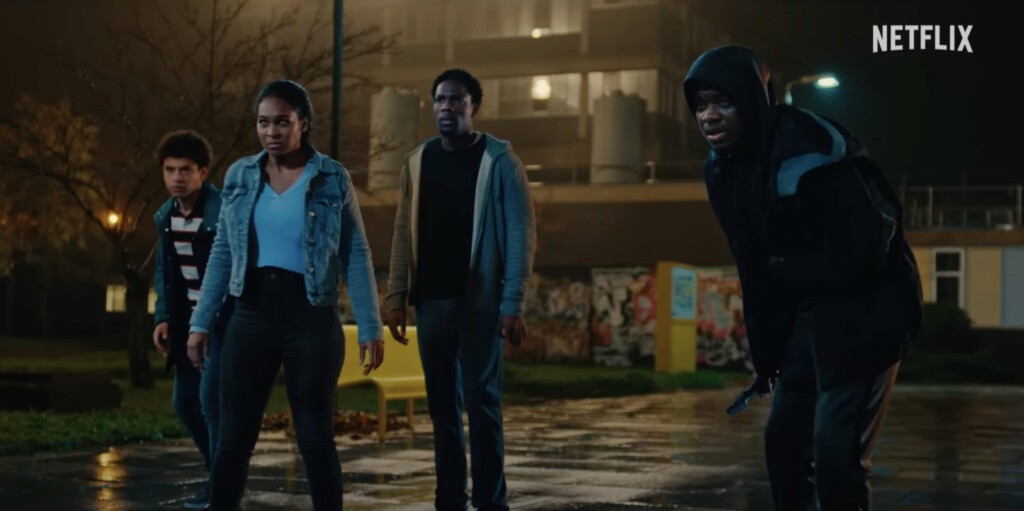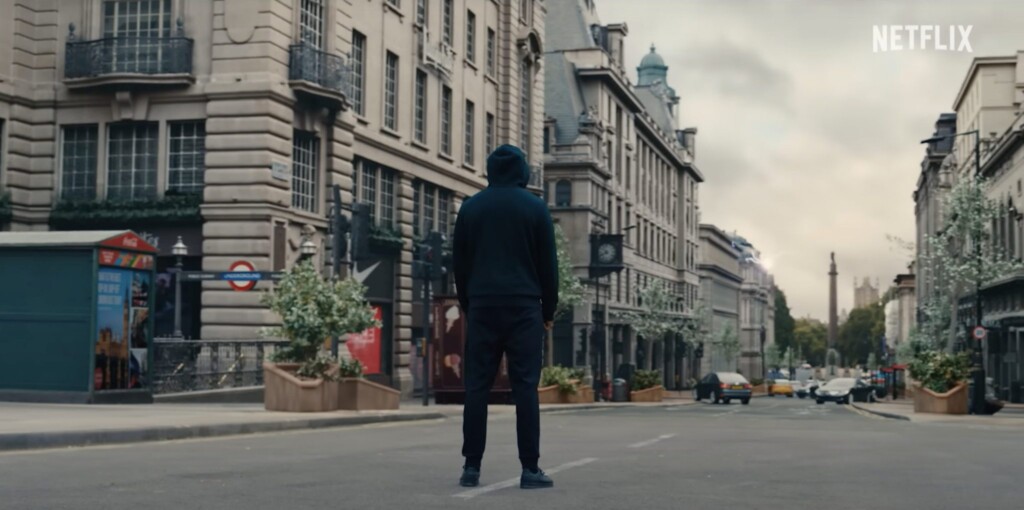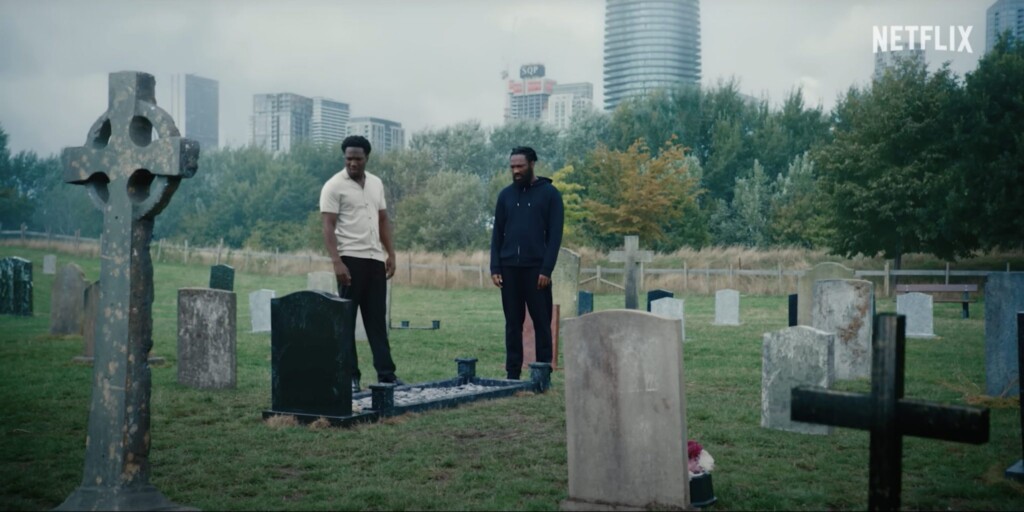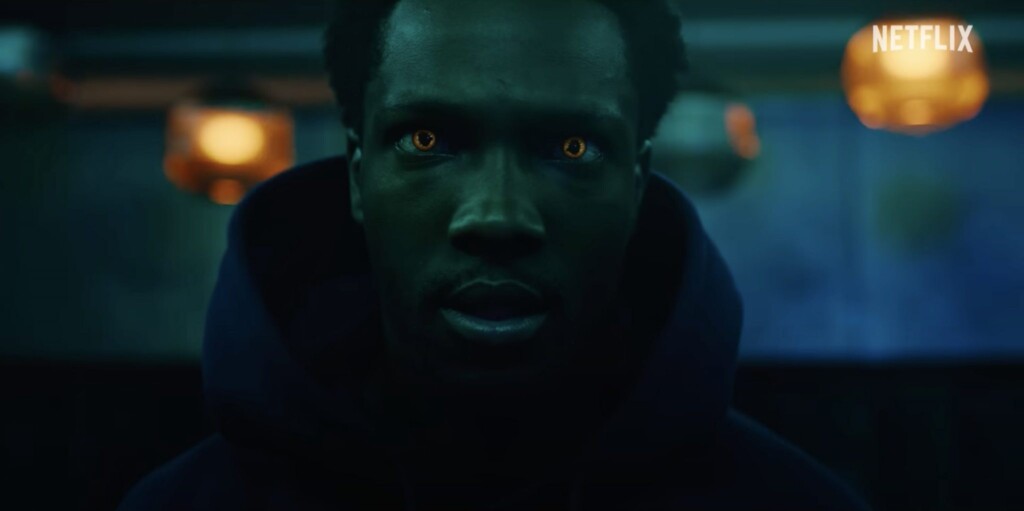Del reviews the new Netflix series ‘Supacell’

All images courtesy of Netflix.
“Supacell” Starring Tosin Cole, Nadine Mills, Eric Kofi Abrefa, Calvin Demba, Josh Teduka, Adelayo Adedayo and others. Directed by Rapman and Sebastian Thiel. Six episodes, one hour each. Rated TV-MA. Streaming on Netflix.
Plot summary: Ordinary citizens who seemingly have no connection to one another mysteriously develop superpowers. A shadowy organization wants to sequester them from humanity.
Are there spoilers in this review: No.
Del’s grade: A
Del’s take
Admit it. There have been times when you’ve wished, by the power of your mind alone, you could float the TV remote to within reach, cause the ATM to spit out an extra hundred dollars, or flatten the tires of that jerk who pulled out in front of you.
I have. Matter of fact, one time I tried to use telekinesis to make my car keys leap into my hands. Instead, people who were watching threatened to have me committed to the mental ward at the local hospital.

Alas, none of us is an X-Man – except Donald Trump, who has the power to turn people’s brains into mulch. Intellectual rot is deeply and irrevocably contagious.
But it’s nice to dream about such things and that’s the essence of “Supacell,” the new six-episode series streaming on Netflix. In “Supacell” people who inherit a mutated sickle cell gene develop a superpower, sometimes multiple superpowers, and in shades of “Firestarter” those nasty killjoys with the government are out to get them.
What sets “Supacell” apart from “The Uncanny X-Men” or other superhero stories is that the people, all black, come from ordinary walks of life, including some walks of life that are, shall we say, less than honorable. They don’t wear capes, they don’t look weird (apart from a momentary orange glow – or is that spray tan – emanating from their eyeballs), and they don’t have the usual crime-fighting truth/justice/American way agenda of, say, a Spider Man or Green Lantern.
Instead, they’re just ordinary people; well, I should say ordinary British people, going about their ordinary British lives until one day they look up and discover they can run faster than The Flash, teleport across town, or slam that bad Tinder date against a brick wall with the flick of a finger.
I wasn’t so much interested in their extranormal capabilities as I was the unfolding storyline, and here is where Rapman, the rapper and producer who is also the writer and director of “Supacell,” excels as a creator. Each character has his or her conflict trajectory and somehow – don’t ask me how – these disparate plots are woven into a single, overarching story arc with such seamless, organic dexterity that I, as a writer, am still trying to figure out how Rapman pulled it off. You thought “Stranger Things” was complicated? This is complicated. But it sure looked easy.





The actors chosen for the black roles are all excellent. There wasn’t a bad performance in the lot. With the white roles things become a bit more hackneyed. I’m not sure we need another white female villain (Sian Brooke as Victoria Kesh); Elisabeth Shue (Madelyn Stillwell on “The Boys”) and many notable others have met that quota. Ray (Eddie Marsan), who is Victoria’s immediate subordinate, comes across as the lite version of a squeaky and silly Bond bad guy.
Foul language and sex are rampant, and the story dives headlong into the seedy London drug trade, so “Supacell” is NOT a series you’d want for the kiddies. Plus, I watched it with subtitles on because I could not keep up with the accents and slang.
“Supacell” ends with a cliffhanger … and an obvious solution, which makes me think creator Rapman has something special in store, something that defies obvious. Whether he does or not, I’m definitely checking out Season 2 as I’ve got to see what happens next.
So there we are. “Supacell” won’t cure cancer or ensure world peace, but it promises six hours of good entertainment and I’m giving it a score of A.
No where did I put those car keys?
Del Stone Jr. is a former journalist and writer.
![]()
Leave a Reply